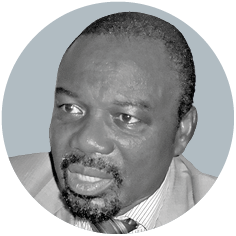Press clippings
Upheaval in Mali
France: SlateAfrique.com
The reasons for Mali’s instability are rooted in the Western intervention in Libya. (...) Whenever there are reasons to use force against dictators and war criminals, policymakers must be very careful and anticipate possible negative side effects of their action.
Mali: L’Essor
The long-term consequence of Mali’s coup will be the destruction of the country’s social fabric which used to accommodate various cultures and ethnicities, relying on families and solidarity, a sharing of responsibilities, division of labour and reasonable discourse. Instead, we now see authoritarianism and repression arouse feelings of hatred and revenge.
Ivory Coast: Nord-Sud Quotidien
In Bamako and around the world, the armed action of the MNLA has been criticised, especially since Azawad’s independence is unlikely to be accepted by the international community. (...) In the current situation, separatists are not in a strong position to open a new front.
Senegal: Leral.net
The determination and professionalism of the ECOWAS is to be praised. We should encourage ECOWAS in prospective efforts to prevent similar coups. (...) An era of freedom, constitutional rule and civilian leadership seems to have arrived all throughout Africa. Mali proves that military governments are in no way superior to civilian ones. What matters are democratic principles, and whether the opposition is able to fight dictatorial aspirations, as was recently done in Senegal. (Moustapha Niasse, former prime minister of Senegal, in an interview.)
Germany: taz
It would be wrong to recognise Azawad as a state at this time, but it would be equally wrong to demonise it as a terrorist haven.
Kenya: Business Daily
A negotiated deal in Bamako would still leave Mali confronting the massive challenge of the northern crisis. Despite the mutineers’ complaints, there is a widespread recognition that the crisis cannot be resolved through military means alone.
Spain: ABC.es
More than 3.5 millionen Malians are at risk of famine because of failing rains in recent months. (...) The region’s crisis, its “strangualtion”, has political reasons too. (...) This region is haunted by radical Islamism, hunger, refugees and civil strife.
France: Jeune Afrique
In northern Mali, Tuareg rebels are no longer calling the shots, Islamists are. In Gao and Timbuktu, al-Qaeda commanders are roaming about freely, putting the whole area into turmoil. (...) Ansar Eddine and his hundreds of Tuaregs appear to have hegemony, but the reality is more complex. (...) Fighters are moving back and forth between the groups. At least for the moment, the MNLA carries little weight in the area; it must compete with two more armed forces.
USA: Monthly Review
Inevitably, there will be calls for the US to intervene (...) Humanitarian aid should be managed by the United Nations, not by the Pentagon. (…) Only the people of Mali have the right to decide their own destiny. This is oppressed peoples’ simple right to self-determination.








